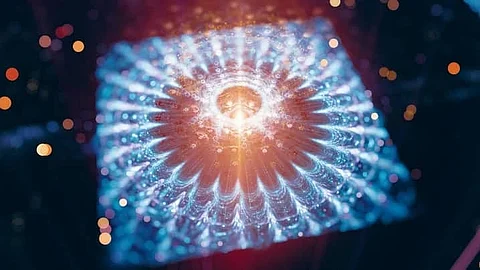
- Insights
- Cryptocurrencies
- Stocks
- White Papers
- Industry
- Geography
- Insights
- Cryptocurrencies
- Stocks
- White Papers
- Industry
- Geography


Quantum sensors utilize quantum states for measurements. They capitalize on the fact that quantum states are susceptible to disturbances meaning they also can become vulnerable to measuring instruments.
Measurement devices that exploit quantum properties have been around for a while, such as atomic clocks, laser distance meters, and magnetic resonance imaging used for medical diagnosis. What can now be considered new is that individual quantum systems, like atoms and photons, are increasingly used as measurement probes. The entanglement and manipulation of quantum states are used to improve the sensitivity, even beyond the limit set by a conventional formulation of the quantum mechanical uncertainty principle.
Yet, many scientists believe that quantum will enjoy its first real commercial success in sensing. That's because sensing can avail the very characteristic that makes building a quantum computer so difficult-the extraordinary sensitivity of quantum states to the environment.
Whether they respond to the gravitational pull of buried objects or picking up magnetic fields from the human brain, quantum sensors can recognize a wide range of tiny signals across the world. Some physicists believe that gravity-measuring quantum sensors, in particular, will become more widespread quickly with a potential market of USD 1 billion a year.
However, beyond specific niche markets, it remains to be seen how competitive quantum sensors will be. They are frequently more prominent and more complex than their classical counterparts. Franck Pereira Dos Santos from the SYRTE metrology laboratory in Paris believes quantum technology is sometimes oversold by those lacking real experience in building sensors.
A common challenge in quantum sensing is the conflict between isolating the sensitive quantum states from external disturbances while at the same time being able to manipulate the quantum states and expose them to the physical quantity that is to be measured.
In theory, quantum sensors have the advantage of far more accurate measurements than conventional sensors. But to become commercially attractive, the benefit has to be realized in practice at a reasonable price.
As there are many types of measurement devices available, it may exploit quantum properties in one way or the other. Atomic clocks have become smaller and today commercially available in fingernail size. Researchers are now turning to atomic transitions at optical or even ultraviolet frequencies and using single quantum systems to develop even more accurate clocks.
Relatively new on the market are compact gravity meters based on laser-cooled atoms. They can be used for detailed underground mapping, for instance, mineral prospecting, geophysical surveys, and seismology.
The potential impact of quantum sensors is broad and considerable, from ultra-high-precision microscopy, positioning systems, clocks, gravitational, electrical, and magnetic field sensors to an optical resolution beyond the wavelength limit.
Quantum sensing will help advance the research front in many fields of science. For instance, the gravitational-wave observatory Ligo is now implementing squeezed quantum states in its next generation of detectors. The quantum enhancement will allow for observation of gravitational waves originating from sources at ten times longer distances than before.
Quantum sensors are also predicted to enable detailed mapping of the underground, autonomous driving, medical progress, brain-machine interfaces, detection of minor traces of explosives and poisons, and improved imaging technologies both at short and long distances.
